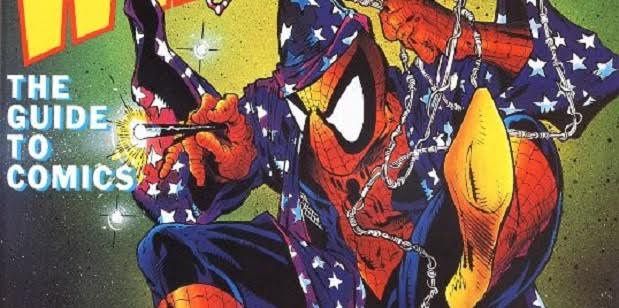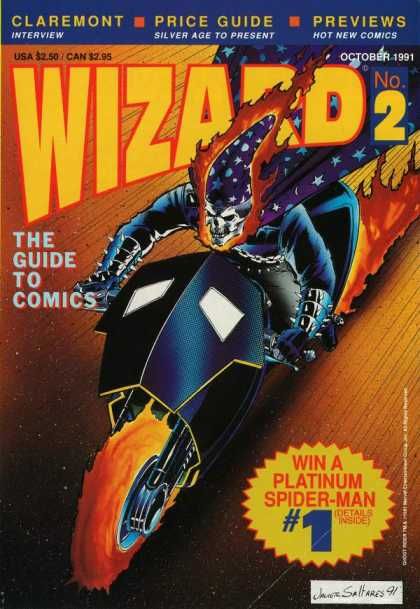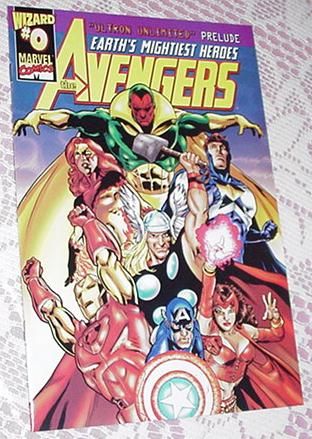It was the most successful fanzine in history -- and also the most controversial. Wizard magazine is approaching its twenty-fifth anniversary, and G. Kendall of Not Blog X is here to examine the creator interviews, industry news, scatological humor, and twisted Mego shenanigans that defined an era.
I’m here to make you feel old. We’re rapidly approaching the twenty-fifth anniversary of Wizard: The Guide to Comics and a few words need to be said. Or perhaps, a few columns published over the course of several weeks need to be written. Wizard is viewed by most as a uniquely ‘90s phenomenon, but it’s worth noting that the magazine actually ran for just shy of two decades (July 1991 to January 2011). Anecdotally, I can tell you that numerous newsstand vendors kept Wizard on the stands long after they dropped actual comics.
Looking online, my research indicates the magazine shambled along past the ‘90s by attaching itself to various pop culture fads and B-list celebrities until its final days. Wikipedia tells me that its name shifted from Wizard: The Guide to Comics to Wizard: The Comics Magazine to finally Wizard: The Magazine of Comics, Entertainment and Pop Culture (but no Oxford commas, apparently) in an effort to find new audiences during the ailing days of print media. After a brief attempt to return to a more serious, comics-driven direction, Wizard’s owners announced the demise of the magazine in 2011, promising an online edition would follow. To my knowledge, only one issue was uploaded.
Outside of the Wizard World conventions, you don’t hear the W-word very often in regards to comics today. It’s entirely possible that some of you have never even seen an issue of the magazine -- this wouldn’t shock me, since the influence of the publication was already on the wane by 2000, and an entire generation of comics fans has been introduced to the medium through libraries, bookstores, movie adaptations, and just an overall shift in the culture since then.
If you were there for the glory days of Wizard, though…well, you were exposed to a lot of fart jokes. Wizard has a reputation for juvenile humor, not undeserved, but it was also wildly successful in the early ‘90s, selling over 500,000 copies a month. I confess that I have mixed feelings toward Wizard. I was first exposed to the magazine in 1993 by a friend who would bring copies to school, and was kind enough to loan them to me during the day. Wizard was the perfect length for school day reading, with numerous articles on the history of comics, previews of upcoming issues, exclusive art, creator interviews, Top 10 lists, and dumb fumetti comics featuring old toys. (For those who don’t know, Robot Chicken is a direct descendant of Wizard.)
By 1999, I was actively irritated that I “had” to buy an issue of Wizard in order to acquire the exclusive Avengers comic polybagged with the magazine. If you can remember the message board posts of the time, you’ll know I wasn’t alone.
Were we too unkind to Wizard by the decade’s end? Are my adolescent remembrances of Wizard’s glory years far too sympathetic? Did Wizard really stage a hotcakes giveaway in a comic book store? Return in a few days, as I explore the history of Wizard, the magazine Frank Miller once called a “bible written by Satan.” Should be fun!
Thanks to Brian Cronin for his help getting me started on CSBG, and for producing such great content here for years. You can check out my site Not Blog X and follow me on Twitter for more of the highs and lows of comics past. See you in a few days!



